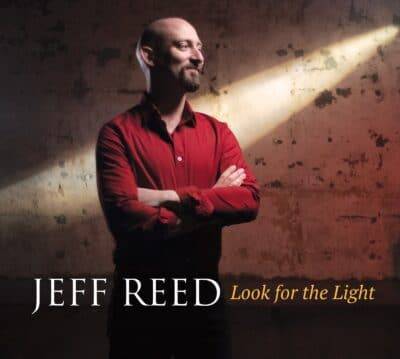Jeff Reed Look for the Light
Jeff Reed
Look for the Light
Stricker Street
Look for the Light is the debut for jazz bassist Jeff Reed as bandleader who brings a collection of originals and jazz standards performed by a quintet. Let’s first share some information on Reed before getting to some of the remarkable stories that are the foundation for the recording. Reed is an acoustic and electric bassist, composer, and educator, currently residing Baltimore MD. As such, he is an in-demand musician in the rich jazz strongholds of Baltimore and Washington, D.C., performing often with fellow resident Warren Wolf (vibraphonist and multi-instrumentalist) and acclaimed trumpeter Sean Jones, who is a member of the quintet here. But Reed has also performed extensively across the U.S. and globally with such artists as Gary Thomas, Miguel Zeon, David Sanchez, Dave Kikoski, Dave Liebman, Jeff Coffin, Bennie Maupin, and Tom Morello, to name such some. Reed’s name has appeared on over 50 albums. Reed holds degrees from Towson University and University of Maryland and is currently an adjunct faculty member at Towson University.
Now given that the inspiration for the album birth of Reed’s son Fox in 2011,. Eight years later Reed considered finishing the song. Reed ruminates, “When I finally decided to produce an album of my own, I stumbled across this melody. Finally, I was able to complete the song, and it’s presented as the title track of this collection of music.” As Reed was preparing for the recording of this music, he got a call from one of my best friends and the drummer on this recording, Eric Kennedy. He informed Reed that his mother, Dorothy, had died early that morning. So, the album expresses the full totality of emotion. This alignment of events for Reed, without question, was confirmation that he needed to gather his band and go forward with this effort.
The instrumentation is a bit unusual in that Todd Marcus plays bass clarinet, and rather than a piano we have Jonathan Epley on guitar. Reed composed four of the nine with an interesting selection of covers, two from Charlie Parker (“Segment” and “Quasimodo”), “A Look Inside” from pianist Kenny Drew Jr., “Waltz New” from guitarist Jim Hall, and “Tricotism” from renowned bassist Oscar Pettiford. That repertoire leans toward bebop and hard bop and Redd’s own “Conversion” indicates that he not only knows those conventions but he’s willing to go out on the edge a bit too, evidenced perhaps best by Epley’s guitar solo and dialogue with Jones in the piece. Not to be outdone, Marcus takes the bass clarinet into territory not often heard on the instrument. Unlike some bassists who are content to compose and remain mostly as a vital cog of the rhythm section, Reed does that but also manages to solo on almost every piece. He has a lyrical touch but can swing too. Each member is declarative soloist, but the strength of the album lies in the dialogues between the players, swift counters to the other’s statement, akin to free jazz jam session.
Kennedy’s drums announce “Tricotism” as Jones’ trumpet and Marcus’ bass clarinet punctuate the track with quick bursts while Reed solos emphatically on his acoustic bass. Paragon, the first in a sequence of three originals, takes it down a few notches. Again, we hear Reed’s animated bass in the forefront, setting up a rather subtle swing groove. After “Conversion,” described above, we reach the title track, which is a peaceful series of melodic statements and improvisational passages, with Epley’s bright toned guitar leading the way. “A Look Inside,” continues the conversation but builds to a higher level of intensity. tossed liberally. Reed’s glissandos on the bass coupled with Kennedy’s rapid-fire drumming (especially remarkable throughout this track) set the stage for first Marcus, Epley, Reed and then Kennedy to take their own excursions, marked by several conversant exchanges on the eights. Jones lays out for that one but returns, leading into Bird’s “Quasimodo,” which is rendered with requisite enthusiasm and energy. Reed and Kennedy lead the charge on the closer, Reed’s “Your Name Never Came Up,” a blend of be-bop, free-flowing jazz, and tricky syncopated rhythm patterns as Jones delivers fiery bursts answered by Epley, Kennedy, and Reed.
Reed proves to be the kind of composer that allows his bandmates to contribute inventively and converse creatively. Each shine on this exhilarating debut and the quintet blends beautifully.
- Jim Hynes
Discover more from Making A Scene!
Subscribe to get the latest posts sent to your email.















































